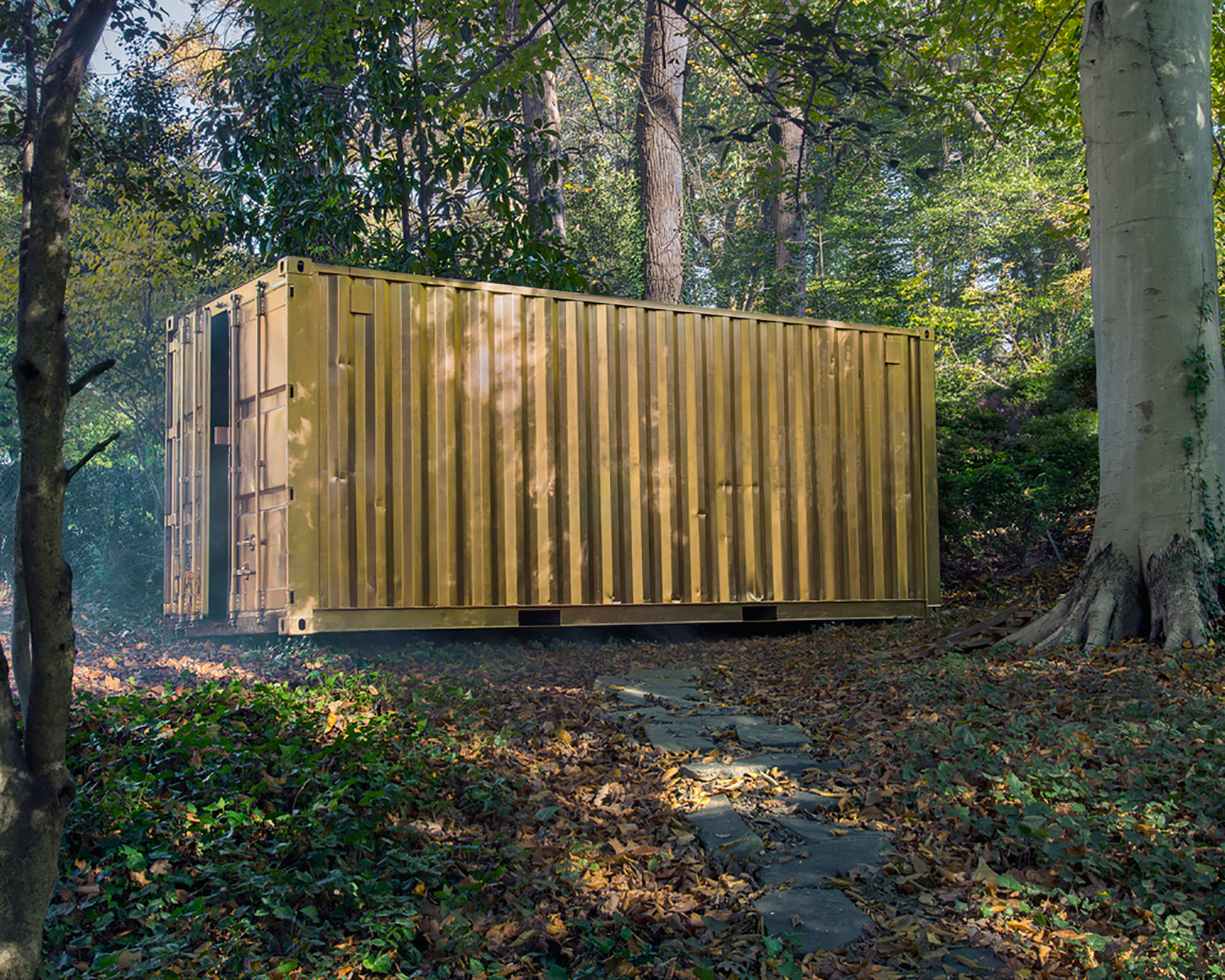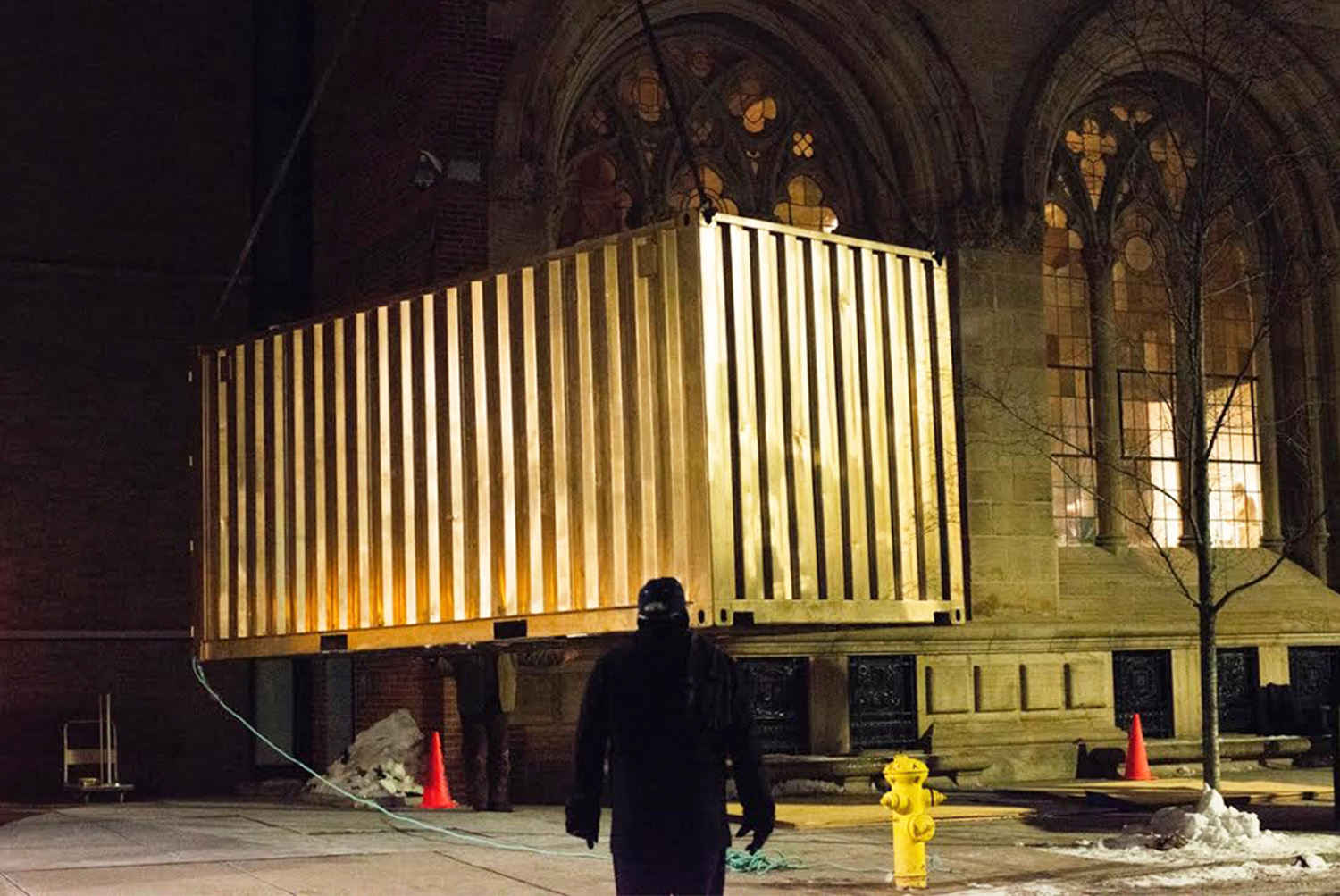PORTALS

In our modern world, where communication is omnipresent via social media, texting, and online forums, it is a novelty to find a method of communication that goes beyond words on a screen. Amar Bakshi was shaped by his experience with a grandmother whom he maintained a relationship through an electronic medium, and his long bus rides back to law school during which he struck up conversations with random strangers to pass the time. However, Amar felt as if the same devices that keep us connected to our friends and family were restricting us socially. Social media outlets like facebook and communication apps like skype encourage conversations with the same people, and limit experiences with new people. It is with this revelation that Amar created Portals.

What began “as a daydream” now has over 20 locations all over the globe. Amar’s “Portals” are gold-covered shipping containers and tents that look like they belong in The Fifth Element. Within the containers are darkened rooms that allow the participants to have face-to-face conversations with another Portal across the world. The climate-controlled environments have been optimized for these conversations, with high-definition cameras allowing the immersive experience to provide the most realistic projection of the other Portal. Participants may talk for however long they desire, as long as the other Portal is willing to comply. The Portals, originally intended solely for conservation, have become home to intimate concerts, family reunions, and moving displays of dance. Amar “expected the Portals experience to be neat, unexpected – maybe cool. But we were surprised to find it had such an emotional effect.” Amar and his team regularly have to pull participants out after conversations run longer than two hours. Portals are staffed by a full-time “Portal Curator” who help participants with translation, interpretation, engaging the broader community, and organization of special events.
These Portals have an element of privacy and anonymity that is lost in today’s world. Amar explains “Cell phones don’t work in the Portal. Nothing is live-tweeted. Participants are unlikely to see their counterpart abroad again, so whatever they say is not likely to make its way back to friends at home. Third, the conversations felt relatively natural. Instead of talking to a disembodied head on a computer screen, participants spoke to a full, standing human being – fidgeting and swaying – and made direct eye contact, unencumbered by goggles or headphones.” These intimate and privatized experiences lead to more wholesome and engaged conversations that have led to the Portals becoming a international fascination.
All Portal sites can be found here: https://www.sharedstudios.com/sites
More information about Portals can be found here: http://www.amarcbakshi.com/portals/
To organize a portal for your community, visit: https://www.sharedstudios.com/contact
Article by Sol Thompson
All Images courtest of Shared Studios
